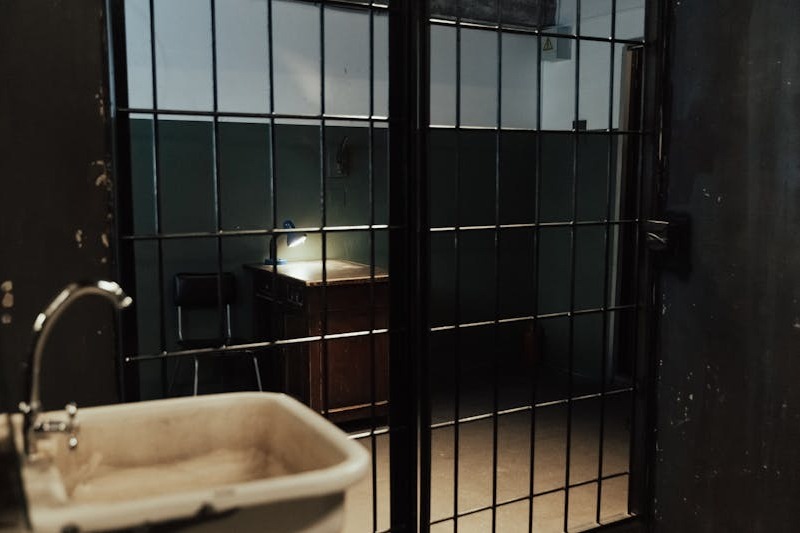Arrested for Annoying or Molesting a Child Under 18 (Penal Code § 647.6) in California

If you’ve been arrested for annoying or molesting a child under 18 under California Penal Code § 647.6, you’re facing serious charges that could have significant consequences. This law is designed to protect minors from inappropriate behavior, but its broad language can sometimes lead to misunderstandings or false accusations.
Before making any statements or decisions, it’s crucial to understand exactly what these charges mean, the potential penalties you’re facing, and the defenses that may be available to you.
What is Penal Code § 647.6?
California Penal Code § 647.6, often referred to as “child annoyance” or “child molestation,” criminalizes behavior that annoys or molests a child under 18 years of age. The statute states:
“Every person who annoys or molests any child under 18 years of age shall be punished by a fine not exceeding five thousand dollars ($5,000), by imprisonment in a county jail not exceeding one year, or by both the fine and imprisonment.”
It’s important to note that this law is broader than many people realize. The terms “annoys” and “molests” in this context don’t necessarily imply physical contact or overtly sexual behavior.
Key Elements of § 647.6 Charges
To secure a conviction under § 647.6, the prosecution must prove several elements beyond a reasonable doubt:
- You engaged in conduct directed at a child.
- A normal person, without hesitation, would have been disturbed, irritated, offended, or injured by your conduct.
- Your conduct was motivated by an unnatural or abnormal sexual interest in the child or children generally.
- The child was under the age of 18 at the time of the conduct.
It’s crucial to understand that the law doesn’t require physical contact with the child. Even seemingly innocent behavior could potentially violate this law if it’s motivated by an abnormal sexual interest in children.
What Constitutes “Annoying” or “Molesting”?
The terms “annoys” and “molests” in this context are broader than their common usage might suggest. Courts have interpreted these terms to mean conduct that would irritate, disturb, or be objectively offensive to a normal person. This could include:
- Inappropriate comments or questions of a sexual nature
- Excessive or unwanted attention
- Following or watching a child
- Exposing oneself to a child
- Attempting to lure a child away
The key is that the behavior must be motivated by an unnatural or abnormal sexual interest in the child.
Penalties for § 647.6 Violations
The penalties for violating Penal Code § 647.6 can be severe and vary based on the specific circumstances of the case and the defendant’s criminal history.
First Offense
A first offense under § 647.6(a) is typically charged as a misdemeanor, punishable by:
- Up to one year in county jail
- A fine of up to $5,000
- Or both jail time and a fine
Aggravating Factors
Certain factors can increase the severity of the charges and penalties:
- Entering an Inhabited Dwelling: If the offense involves entering an inhabited dwelling without consent, it becomes a “wobbler” (can be charged as either a misdemeanor or a felony), punishable by:
- Up to one year in county jail or state prison
- A fine of up to $5,000
- Prior Convictions: A second or subsequent conviction under § 647.6 is automatically a felony, punishable by state prison time.
- Prior Felony Convictions: If you have certain prior felony convictions involving minors, a violation of § 647.6 can be punished by 2, 4, or 6 years in state prison.
Additional Consequences
Beyond the immediate legal penalties, a conviction under § 647.6 can have far-reaching consequences:
- Sex Offender Registration: Conviction requires registration as a sex offender, potentially for life.
- Immigration Consequences: For non-citizens, a conviction could lead to deportation or inadmissibility.
- Professional Licenses: Many professional licensing boards may suspend or revoke your license upon conviction.
- Employment: A conviction can make it extremely difficult to find employment, especially in fields involving work with children.
- Housing: Some landlords may refuse to rent to individuals with sex offense convictions.
- Child Custody: A conviction could negatively impact child custody arrangements.
- Reputation: The stigma associated with these charges can be long-lasting and affect personal and professional relationships.
Legal Defenses for § 647.6 Charges
If you’re facing charges under Penal Code § 647.6, several legal defenses may be available:
1. Lack of Sexual Motivation
If your conduct was not motivated by an unnatural or abnormal sexual interest in children, you should not be convicted under this statute. Your attorney may argue that your actions were innocent or had a non-sexual purpose.
2. False Accusation
Unfortunately, false accusations do occur, especially in cases involving children. A skilled defense attorney can investigate the circumstances and potentially uncover evidence of a false accusation.
3. Mistaken Identity
In some cases, you may have been misidentified as the person who committed the offense. Your attorney can challenge eyewitness identifications and alibi evidence.
4. No Objectively Annoying or Offensive Conduct
If a “normal person” would not have been disturbed, irritated, or offended by your conduct, you may have a valid defense.
5. Constitutional Violations
If your constitutional rights were violated during the investigation or arrest, certain evidence might be suppressed.
6. Age of the Victim
If you reasonably believed the person was 18 or older, this could be a defense. However, you must be able to show that you had a good faith belief based on reasonable evidence.
The Legal Process for § 647.6 Charges
Understanding the legal process can help you prepare for what’s ahead:
- Investigation: Law enforcement gathers evidence, often including interviews with the alleged victim and witnesses.
- Arrest: If there’s probable cause, an arrest is made.
- Booking: You’re photographed, fingerprinted, and your personal information is recorded.
- Arraignment: You appear in court to hear the charges and enter a plea.
- Bail Hearing: The judge decides whether to grant bail and sets the amount.
- Preliminary Hearing: For felony charges, the prosecution must show there’s enough evidence to proceed to trial.
- Pretrial Motions: Your attorney may file motions to suppress evidence or dismiss the case.
- Plea Bargaining: Sometimes, a plea deal may be negotiated.
- Trial: If the case goes to trial, both sides present evidence and arguments to a jury.
- Verdict: The jury decides whether you’re guilty or not guilty.
- Sentencing: If found guilty, the judge determines the sentence.
What Most People Don’t Know About § 647.6 Charges
- No Physical Contact Required: You can be charged even if you never touched the child.
- Subjective Intent Matters: Your internal motivations are a crucial element of the crime.
- Age of Consent Doesn’t Apply: Even if the minor consented or initiated contact, you can still be charged.
- Counseling May Be Required: If probation is granted, counseling is typically a mandatory condition.
- Charges for Attempting to Contact Adults: You can be charged under this law even if you thought you were contacting an adult, if you believed that adult to be a child.
- Lifetime Consequences: The sex offender registration requirement can last for life, affecting many aspects of your future.
- No-Contact Orders: If convicted, you may be prohibited from having any contact with the victim.
Frequently Asked Questions
Q: Can I be charged if the child wasn’t actually offended or disturbed?
A: Yes. The law uses an objective standard of what would disturb a “normal person,” not the specific reaction of the child involved.
Q: Does the child or their parents have to press charges?
A: No. The decision to file charges is made by the prosecutor, not the alleged victim or their family.
Q: Can I be charged if I didn’t know the person was under 18?
A: Potentially, yes. However, a reasonable belief that the person was 18 or older can be a defense.
Q: Will I have to register as a sex offender if convicted?
A: Yes, conviction under § 647.6 requires sex offender registration.
Q: Can these charges be expunged from my record?
A: In some cases, yes, but it depends on the specific circumstances of your case and conviction.
Why You Need an Experienced Defense Attorney
Given the complexity of § 647.6 cases and the severity of potential penalties, it’s crucial to have experienced legal representation. An experienced attorney can:
- Protect your constitutional rights throughout the process
- Conduct an independent investigation
- Challenge the prosecution’s evidence
- Negotiate with prosecutors for reduced charges or penalties
- Represent you effectively in court
- Help minimize the long-term consequences of these charges
When choosing an attorney, look for someone with specific experience defending against § 647.6 charges, a track record of success in sex crime cases, and someone you feel comfortable discussing sensitive details with.
How The Nieves Law Firm Can Help
At The Nieves Law Firm, we understand the gravity of § 647.6 charges and the impact they can have on your life. Our experienced criminal defense attorneys are committed to providing aggressive and strategic defense for our clients.
We offer:
- Free initial consultations
- On staff private investigator
- Emergency phone line
- Multilingual services
- A team approach to your defense
- Extensive experience in sex crime cases
We’ll investigate your case, challenge the evidence against you, and fight for the best possible outcome. Our goal is to protect your rights, your freedom, and your future.
Don’t face these serious charges alone. Contact The Nieves Law Firm today for a confidential consultation. Remember, an arrest is not a conviction, and there are defenses available. Let us help you navigate this challenging time and work towards the best possible resolution for your case.



